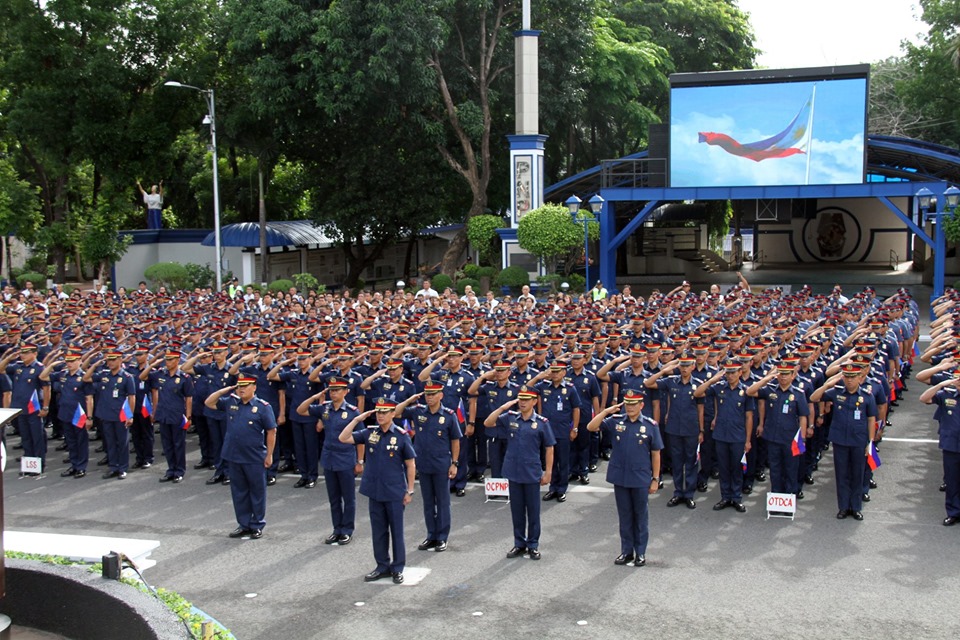
MANILA, Philippines — Thousands of Philippine police officers have received administrative punishments with more than 2,000 dismissed for wrongdoings during raids where drug suspects were killed under the president’s crackdown, officials said Thursday.
Communications Assistant Secretary Marie Rafael Banaag told a news conference that 14,724 police were investigated for their involvement in police drug operations that led to deaths from July 2016 until last April. She said 7,867 of them received administrative punishments for unspecified lapses.
A tally presented by Banaag showed that 2,367 police officers have been fired, 4,100 suspended while the rest were reprimanded, demoted, had their salaries forfeited or deprived of certain privileges.
Banaag did not say how many officers have been criminally charged for serious lapses or outright crimes committed while enforcing the crackdown, which was launched by President Rodrigo Duterte as his centerpiece program when he took office in mid-2016.
Philippine police officials say about 6,600 drug suspects have been killed in raids carried out by the police mostly in gunbattles that ensued after the suspects fought back and endangered the lives of law enforcers. Banaag and other officials reported a lower death toll, more than 5,500, saying authorities were still verifying other drug-related deaths.
Last year, a Philippine court found three police officers guilty of killing a student they alleged was a drug dealer in the first known such conviction under the crackdown.
The court ruled the officers murdered Kian Loyd delos Santos during a raid in Caloocan city’s slums in the Manila metropolis and rejected the policemen’s claim that the 17-year-old fired back while resisting arrest. Delos Santos’s family and witnesses testified in official investigations that he was shot in a dark alley near a creek as he pleaded for his life.
Delos Santos’s killing and that of a South Korean was allegedly strangled to death by an anti-drugs officer in an extortion attempt prompted Duterte to briefly suspend the drug crackdown amid outcries.
National police chief Oscar Albayalde said criminal complaints will be filed separately against at least two officers after a 3-year-old girl, Myca Ulpina, was killed in a police raid in late June in which her father, a drug suspect, was gunned down along with another civilian and a police officer in Rodriguez town east of Manila.
“There are certain flaws probably in what happened during operations but these are actually being addressed,” Undersecretary Severo Catura, an official dealing with human rights issues, said in the news conference. “That’s why we are saying here that however we’re concerned with regard to apprehending criminals, we’re also that concerned with regard to ensuring that the rule of law is followed.”
He added that more than 200 policemen have been killed and 700 others wounded in drug raids — statistics that Duterte himself has often cited to counter allegations by human rights activists that police have killed suspects beyond the law because they violently resisted.
Banaag said it was the first time authorities disclosed the full extent of police who have been disciplined for lapses in the anti-drug crackdown.
Former Commission on Human Rights chairwoman Loretta Ann Rosales, however, said the high number of erring enforcers involved in raids where lives were lost in alarming levels should prompt the government to immediately suspend and review the crackdown.
“It’s terrible, it’s alarming, it’s unconscionable,” Rosales said.
Duterte had rejected those calls and warned drug suspects that his campaign would be more dangerous in the final three years of his six-year presidency.
——
Associated Press journalist Aaron Favila contributed to this report.